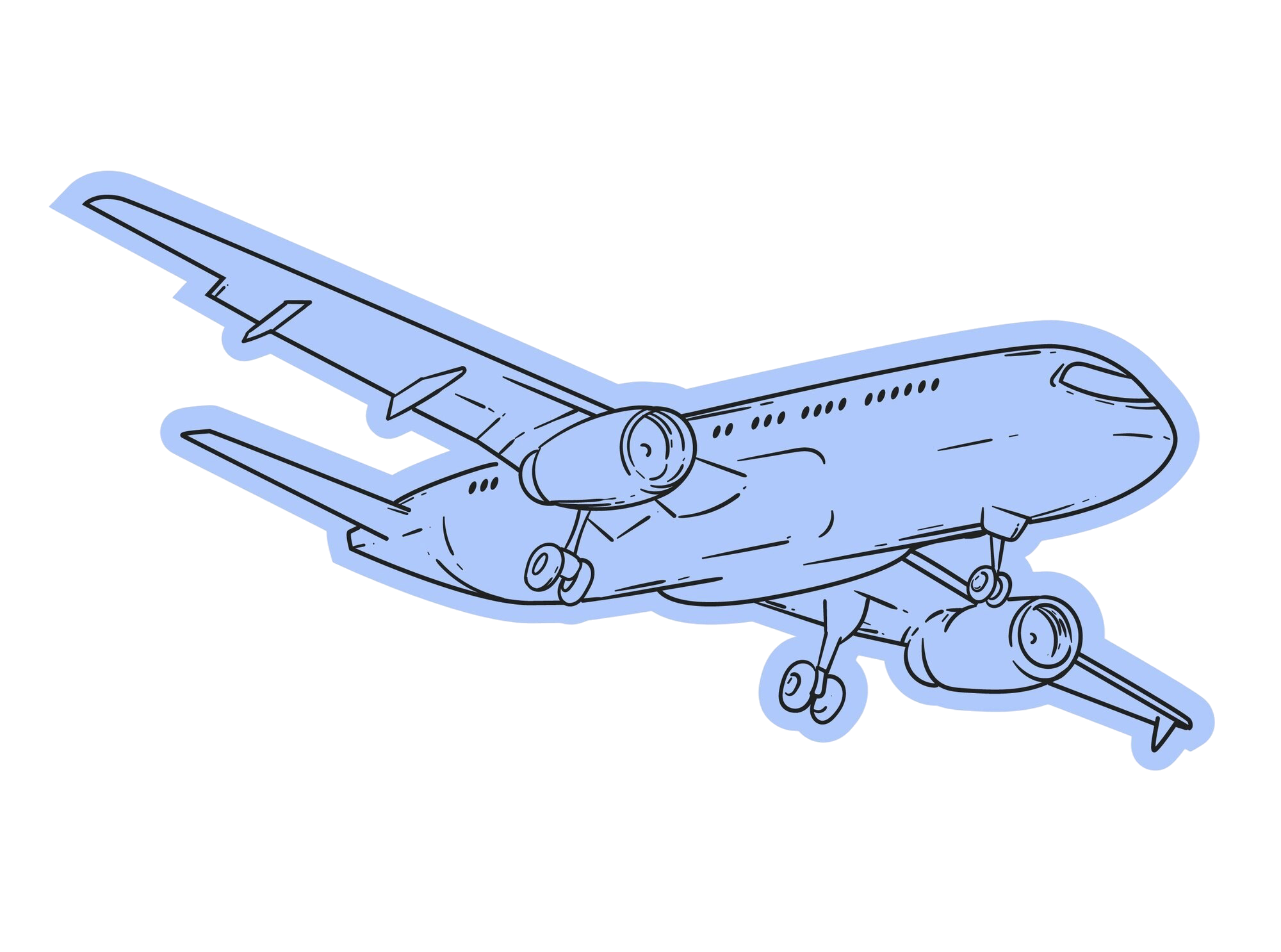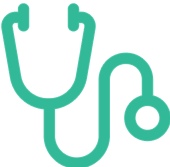Doctor on Board (DoB) Program
The Growing Medical Risk in the Skies
To address the shortcomings of the current identified in-flight medical response protocols, SkyClin launched the Doctor On Board Program, an initiative at the core of its mission to revamp the process for handling inflight medical emergencies.
Rather than relying on chance or general passenger announcements, the Doctor-On-Board program ensures that verified medical professionals are flagged to the crew before the flight even departs.

A System Still Built on Chance
Despite this growing need, current in-flight medical emergency protocols still rely on general announcements and chance. When a medical emergency occurs, the standard procedure followed by the cabin crew is to make an announcement:

"Ladies and gentlemen, if there is a doctor on board, please press your call button"
This practice has remained virtually unchanged since the early days of commercial aviation and comes with a number of critical drawbacks, both medically and operationally:
Lack of certainty about the presence of a qualified doctor
General announcements can cause panic or draw unnecessary attention
Curious passengers may crowd the scene and create unnecessary chaos
Doctors may hesitate to assist due to unfamiliarity with onboard medical equipment
Unqualified helpers may risk providing improper care
Medical professionals may miss announcements while sleeping or watching a movie
Doctors intervene inefficiently due to limited knowledge of airline procedures and available medical equipment

Did you know?

$50,000 - 600,000 USD
A single flight diversion can cost an airline anywhere from $50,000 to over $600,000, factoring in fuel, landing fees, passenger rebooking, and crew logistics.

1 out of 604 flights
Medical emergencies occur on approximately 1 in every 604 flights.

40% chance to find medical support
In about 62% of in-flight medical emergencies get no support from a medical professional.

To address the shortcomings of the current identified in-flight medical response protocols, SkyClin launched the Doctor On Board Program, an initiative at the core of its mission to revamp the process for handling inflight medical emergencies. The program provides a proactive, structured approach that redefines how in-flight medical emergencies are managed and contributes to improved and more efficient response.
Rather than relying on chance or last-minute announcements, the program ensures that verified medical professionals are known to the crew before the flight even departs.
Program’s Benefits
Enjoy special discounts and travel perks through SkyClin’s partner airlines and global network of travel brands. Whether it’s a flight, hotel, or travel experience, SkyClin opens doors to benefits designed for doctors who love to explore.
Be acknowledged as the designated medical professional onboard. Your SkyClin status is flagged to cabin crew, giving you recognition and trust from both passengers and airline staff during every journey.
Be part of a growing international community of physicians who share a passion for travel, service, and medical excellence. SkyClin connects doctors from around the world through a shared purpose caring beyond borders.
Receive guidance and support tools to stay ready for in-flight medical emergencies. With SkyClin, you’re not just traveling, you’re part of a structured medical response network that keeps the skies safer.

Know who can help before you need them. SkyClin flags verified physicians to the cabin crew (via SSR-style identification), reducing unnecessary “Is there a doctor onboard?” announcements and enabling a faster, more professional, protocol-led response when events occur.
A more organized medical response can help prevent false alarms that lead to diversions and delays. SkyClin’s structured approach supports crew decision-making, reduces disruption risk, and feeds de-identified insights back into training and program refinement.
Increase the probability of having a qualified doctor onboard without adding headcount. By offering a limited number of discounted seats per flight to SkyClin members, airlines create a distributed “pool” of medical readiness across the network, enhancing safety posture at minimal cost.
Partnering with SkyClin signals care, reliability, and innovation, strengthening brand equity, boosting satisfaction and retention, and differentiating your airline in a crowded market.

How it works:

Sign Up
Explore our different membership tiers and apply for the most suitable in just minutes.

Get Verified
Our team will review and verify your credentials within 24 hours.

Book your flight
You will have access to your own SkyClin portal, where you can book flights and enjoy the benefits.
Fly with Purpose
Before boarding, your name and seat number will be flagged to the crew so they know who to call when needed.

Support When It Matters
In case of an in-flight medical emergency, you will be approached by the flight crew to provide support.
Report
After each flight, SkyClin members are requested to submit a brief report through the portal.
Terms & Conditions
A limited number of seats are available on each flight. Doctors are encouraged to book well in advance to secure access to SkyClin's preferred rates.
Member doctors are expected to assist and support the cabin crew during onboard medical emergencies. However, doctors should only intervene in cases that fall within their area of expertise. If a situation exceeds their knowledge or capabilities, they are encouraged to inform the crew and respectfully decline to intervene.
Consumption of alcohol or use of sleeping pills is strictly prohibited for member doctors during flights booked through SkyClin.
Doctors must submit a post-flight report through their SkyClin portal for any medical emergencies handled. Submission of this report is required to proceed with future flight bookings through SkyClin.
The decision to divert a flight rests solely with the captain. Doctors serve in an advisory capacity and may offer guidance, but they are not responsible for the final decision.


